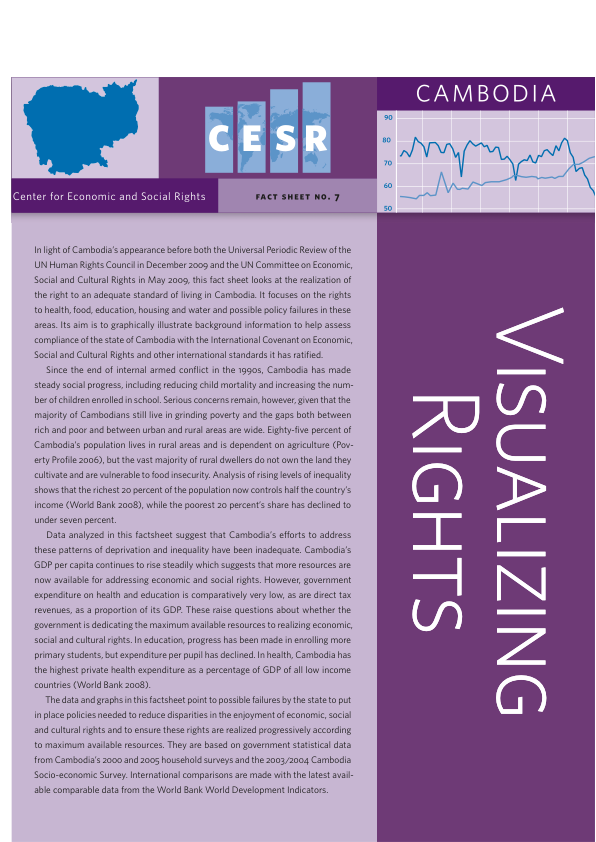 Cambodia's efforts to address patterns of deprivation and inequality have been inadequate, the Center for Economic and Social Rights (CESR) claimed today.
Cambodia's efforts to address patterns of deprivation and inequality have been inadequate, the Center for Economic and Social Rights (CESR) claimed today.
A new fact sheet published by CESR assesses Cambodia's economic and social rights outcomes in the light of the country's resources. The data it presents raises serious questions as to whether Cambodia is doing all it can to realize rights progressively. While Cambodia's GDP per capita continues to rise steadily, government expenditure on health and education is comparatively low as a proportion of GDP. The new analysis also notes that direct tax revenues in the country are very low.
This lack of investment has in some cases led to a deterioration in the enjoyment of economic and social rights. For example, the United Nations Committee on the Rights of the Child recommended in 2000 that Cambodia address "the critical role of... lack of clean water supplies... in the current pattern of childhood illnesses." Yet CESR's analysis reveals that even as GDP per capita increased by almost 50 percent from 2000 to 2005, the percentage of the urban population with access to improved water sources actually declined.
The CESR fact sheet on Cambodia was prepared in light of Cambodia's upcoming appearance before the UN Committee on Economic, Social and Cultural Rights in May 2009. It is part of CESR's Visualizing Rights series, which analyses statistical data from the perspective of a country's economic, social and cultural rights obligations, presenting it graphically so as to highlight potential areas of concern. This focus is intended to help intergovernmental human rights mechanisms, such as the UN, and national and international NGOs, monitor governments' compliance with their economic, social and cultural rights obligations.
We invite your comments and feedback, and encourage requests to make graphs, data and hard copy fact sheets available for NGO shadow reports.
The Center for Economic and Social Rights works to promote social justice through human rights. In a world where poverty and inequality deprive entire communities of dignity, justice and sometimes life, we seek to uphold the universal right of every human being to education, food and water, health, housing, work and social security, and other economic, social and cultural rights essential to human dignity. It has offices in Madrid, New York and Geneva.
